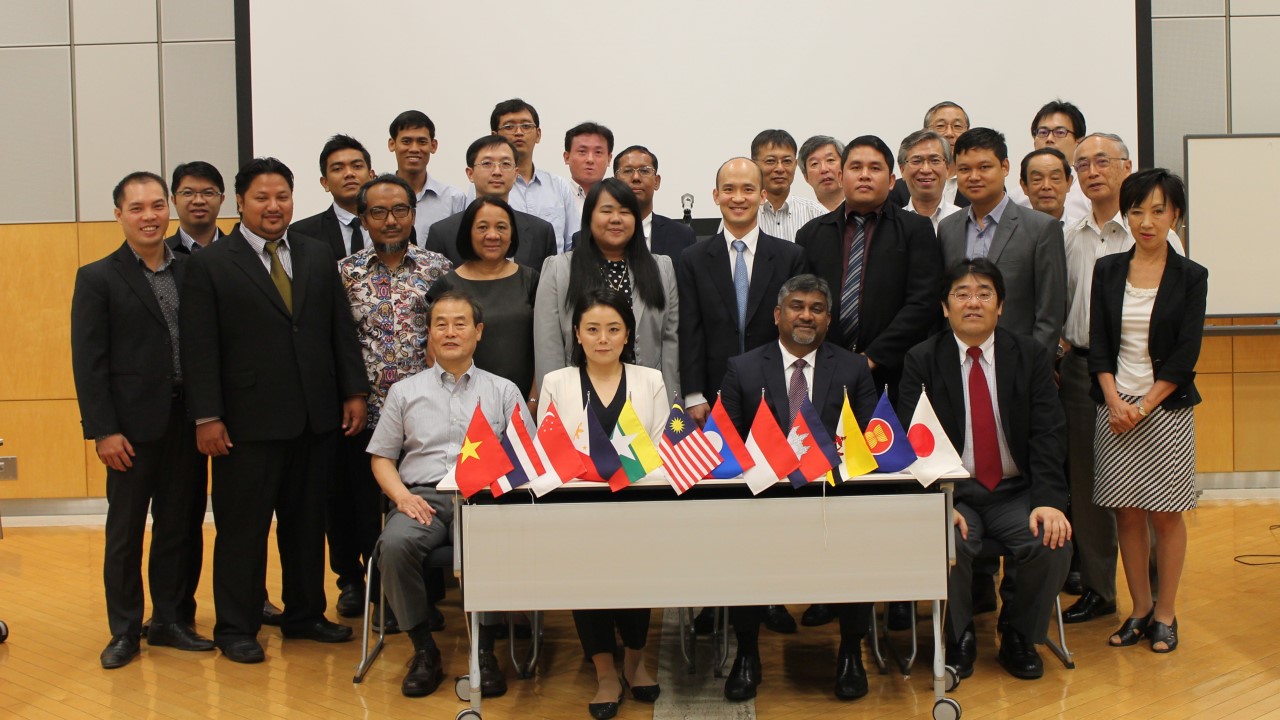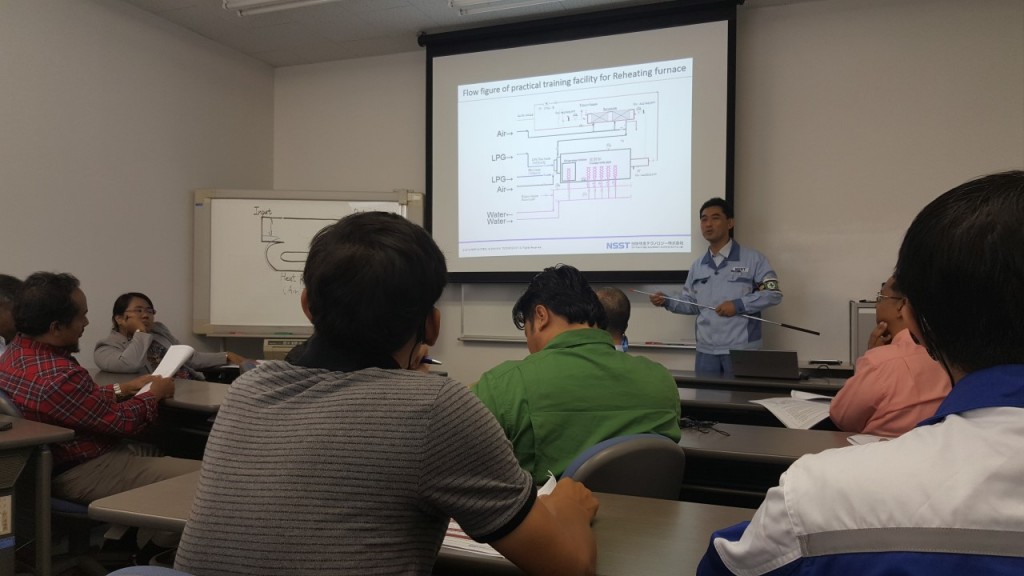Menu

The growth in ASEAN is expected to continue and has led to rapid increase in energy demand. It was estimated that between 2013 and 2035 the energy demand will grow at an average annual rate of 4.3% from 436.8 Mtoe in 2013 to 1,107 Mtoe according to the 4th ASEAN Energy Outlook (AEO4).
Aware of the energy demand growth and its impact to environment, the Southeast Asian nations recognised energy efficiency and conservation (EE&C) as cost-effective measures to address environmental issues. Among the various tools of EE&C, energy management is the best solution for direct and immediate reduction of energy consumption with the competence of energy managers as key to successful energy management.
Against this backdrop, the Energy Conservation Workshop under AJEEP Programme (ECAP) was held on 28 September – 4 October 2016 in Tokyo, Japan. The Workshop aimed to advance the existing training system for energy managers in ASEAN Member States (AMS), as well as to increase the EE promotion in the region towards the ASEAN Plan of Action for Energy Cooperation (APAEC) 2016-2025’s energy intensity reduction target (by 20% in 2020 based on 2005 level). To achieve those objectives, the five-day workshop served as a capacity building activity for energy managers and energy auditors through lectures on the following topics: i) Energy Conservation Policy in Japan; ii) EC Law and Energy Manager Certification System in Japan; and iii) Standard of Judgment in Energy Management System of Japan. The Workshop also promoted an exchange of information among AMS, on energy management system development with interactive discussion to share best practices, experiences and solutions to overcome the challenges and barriers in the sector.
The Workshop also provided participants with know-how to develop the road map for Energy Manager Training and Certification system for Cambodia, Lao PDR, Myanmar and the Philippines. Important documents and information from Japan and other AMS were shared to those four Member States as a reference to develop the road map, such as: best practices handbook, training text book, training programme subjects, and technology scope.
A site visit to a training centre in Kashima was organised on the 4th day of the Workshop. Participants were introduced to the process of plant operation in steel production. At the human development centre, the participants were introduced to some training equipment like the measurement instrument for energy auditing in the mini plant. Valuable practical experience to set the primary air adjustment of mini plant gas furnace was also obtained by the participants.

Site visit to Kashima,Credit : ACE
In total, there are 12,000 certified energy managers within ASEAN. The region still requires about 6000 certified energy managers to achieve impactful energy management system in Indonesia, Malaysia, Thailand and Vietnam. To this end, the AJEEP programme has targeted to provide support for training and certification of 116 trainers in those four AMS until 2019. Singapore has also expressed their interest to support this programme by sharing their knowledge and experience.
Looking forward, the participants expected standardised energy management system in ASEAN in order the support the ASEAN vision on connectivity. There is also an expectation to develop EE&C training centre to promote EE&C through training courses and seminars. To sustain the cooperation in energy management, an energy management network among ASEAN Member States needs to be established. Lastly, the ASEAN participants expressed their sincere gratitude to the ASEAN Centre for Energy and Energy Conservation Centre, Japan for organising the Workshop. A big appreciation was also expressed to Ministry of Economy, Trade and Industry, Japan for the generous support and funding the activity. (RJPS. Featured photo credit: ECCJ)
